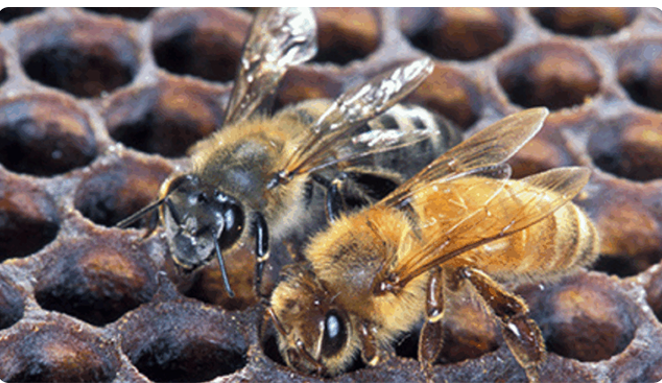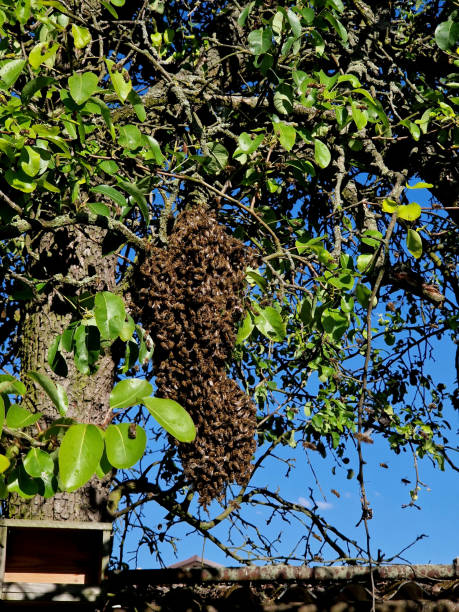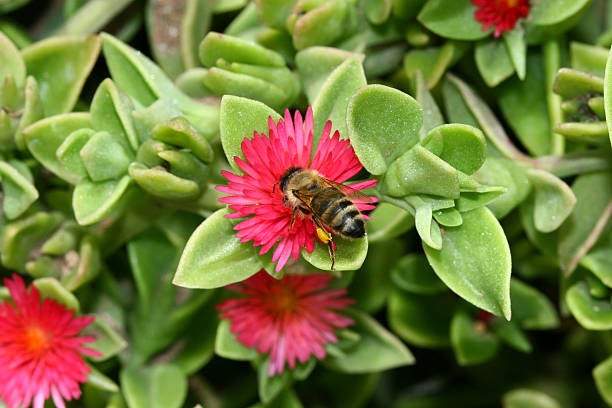Africanized honey bees do not recognize state boundaries and do not mind using their stingers to get their way; officials with both Georgia and Alabama natural resources departments say the “killer bee” invasion soldiers on with no signs of slowing.
Scientists, entomologists and even first responders have long known that without a honeybee apocalypse, there is no stopping the slow invasion by the most successful (so far) invasive species to ever hit North America: the Africanized honey bee.
In 1975, thriller writer Arthur Herzog released his horror novel, “The Swarm,” which presented the scenario of entire communities being overrun by deadly killer bees.
Unlike its genre shelf-mate, “Jaws,” which was released in movie form that same year, “The Swarm” did not have people running screaming from the movie theaters or afraid to go outside.
The truth is, according to a study by Texas A & M University, not only is the average person far more likely to encounter an enraged bee swarm than they ever will a shark, but bee stings kill more people each year than all venomous animals combined.

“The Swarm” is based off of a very real event that occurred in 1956, when African honey bees were imported to Brazil to boost that country’s honey production. Even though safeguards were in place, a significant number of the tiny beasts escaped their enclosures.
Once in the wild, the African honey bees began mating with European honey bees that are common to both North and South America, creating a hybrid that is now known as the Africanized honey bee.
European honey bees are not native species either, as the name suggests.
Over a short span of time, the aggressive Africans found ways to get around the defensive “pheromone shield,” and once inside the hive would kill the queen and install their own queen, according to the UGA Extension Office, thereby “Africanizing” the entire hive, even the non-hybrids.
It’s easy to see why farmers wanted the bees. They are hearty, can live in the wild in temperate climates and produce just as much honey as their European counterparts.
The downside is that African honey bees have a nasty disposition, and when you mess with one, you mess with the entire hive. While the Africanized bees have a venom that is slightly less potent than Europeans, when they attack, the force of the swarm can leave victims with hundreds of stings, which triggers allergic shock in humans.
In fact, the insects are so easy to rile with potentially deadly results, many of the Brazilian farmers who imported the bees in the 1950s gave up beekeeping altogether rather than mess with the angry swarms any longer.

The good news is that out of the thousands of attacks recorded in the United States, only around 100 people have died since the bees made it to North America in 1990. That fact is not causing officials in Alabama to worry any less as the bees have now been documented to have made it to the state.
Officials with The Alabama Department of Agriculture and Industries announced in early July that they euthanized a feral swarm of Africanized honeybees in Barbour County and are taking further precautions to protect communities in the area and the local honeybee population as well.
Barbour County is on the Georgia-Alabama state line, meaning that while the Africanized bees have not been spotted in Georgia, they are knocking on the door.
The honey bee invasion has been slow, but steady. The bees were first noticed in Texas in 1990 and have spread mainly through the Southwest, settling into the arid temperatures. The bees have been documented in 13 states so far.
According to the University of Arizona, if a swarm is spotted or a hive disturbed, the best one can do is drop everything and run. If possible, get into and remain in a closed area such as a house or an automobile.
The fierce insects have been known to chase moving vehicles for up to five miles before giving up and going back to their colony.
Scott Hudson is the Senior Investigative Reporter, Editorial Page Editor and weekly columnist for The Augusta Press. Reach him at scott@theaugustapress.com











